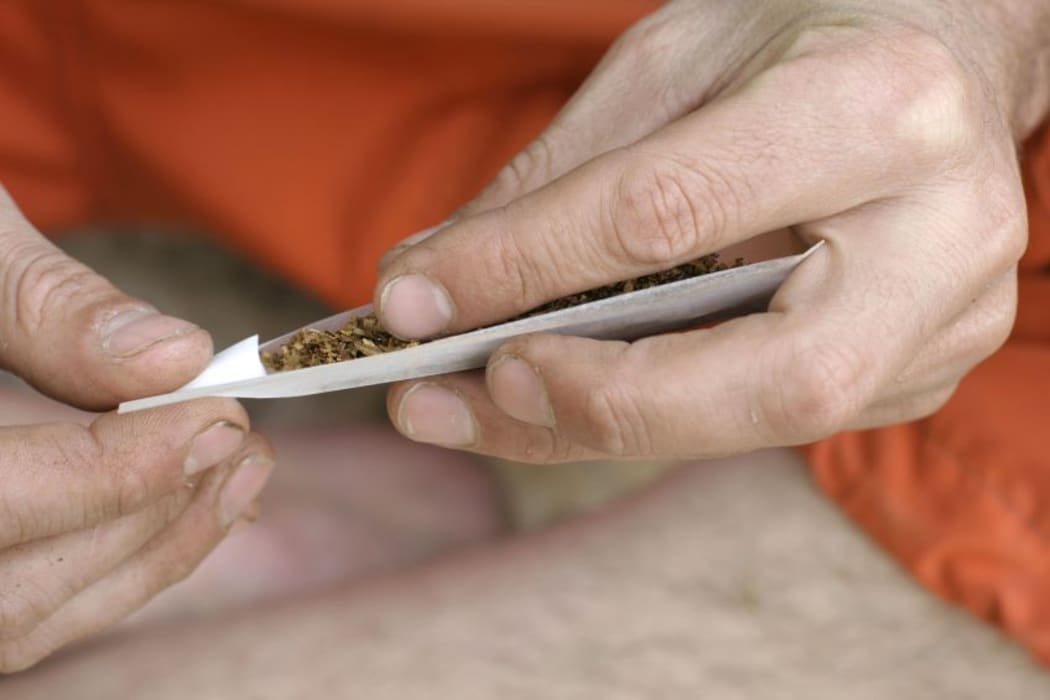The government is considering taking a more tolerant approach to minor drug offences, says Associate Health Minister Peter Dunne.
The potential change comes as a joint study by Johns Hopkins University in the US and the British medical journal The Lancet says the punitive approach to drug offending has done more harm than good.
Five former presidents have also said the global War on Drugs needs to be completely overhauled, according to the Economist magazine.

Peter Dunne says he is open to reviewing evidence around the decriminalisation of cannabis. Photo: 123RF
Mr Dunne told Morning Report today he was not sure New Zealand's drug law was still fit-for-purpose and he wanted drugs to be viewed as more of a health issue.
"Under the general focus of trying to get the appropriate legal balance, the issues of the utilisation of drug paraphernalia are being looked at, issues relating to the penalty regime is being looked at. And I'm also asking the expert advisory committee on drugs when it classifies drugs, to take a focus that is more health-related than previously."
He said he was open to reviewing evidence around the decriminalisation of cannabis.

Peter Dunne says he wanted drugs to be viewed more as a health issue. Photo: RNZ / Diego Opatowski
Green Party health spokesperson Kevin Hague said he wanted cannabis legalised and regulated.
Mr Hague told Morning Report the Green Party was currently clarifying its drug policy, but expected it to favour the decriminalisation of cannabis.
He said all drugs should be treated from a health perspective and regulated in terms of their potential for harm.
Losing the War on Drugs
The War on Drugs was started 45 years ago when the former United States president Richard Nixon called drug abuse America's public enemy number one.
Since then, the War on Drugs has helped bankroll military operations against drug producers in Latin America, and led to a crack-down on drug use within the United States.
While New Zealand played little part in this, it shared the majority of US policy of prohibition.
The Economist said the former presidents of Brazil, Mexico, Colombia, Nigeria and Switzerland had published strong attacks on the War on Drugs in a collection of essays titled Ending the War on Drugs.
In it, the former presidents argued the War on Drugs was costing taxpayers $US100 billion per year, but was helping traffickers earn $US300b a year.
One virulent chapter was written by Ernesto Zedillo, who was president of Mexico from 1994 to 2000. He said he witnessed the corrosive impact of drug cartels on the governance of Mexico, and that control of the drug trade should be taken away from organised crime by "intelligent regulation" - that is, legalisation of drug markets.
The Johns Hopkins and The Lancet report said the War on Drugs had undercut public health worldwide and done little to combat drug use.
"The goal of prohibiting all use, possession, production and trafficking of illicit drugs is the basis of many of our national drug laws," wrote Chris Beyrer, an epidemiology professor at the Johns Hopkins Bloomberg School of Public Health.
"But these policies are based on ideas about drug use and drug dependence that are not scientifically grounded," he wrote.
The research found that harsh drug control policies actually increased the risk of death from overdose.
It also found that enforcement of drug control policies undermined the wellbeing and health of drug users and the communities they live in.
New Zealand drug enforcement was far less draconian than those overseas, especially in Latin America.
But, Drug Foundation executive director Ross Bell said the message from abroad still had a lesson for New Zealand.
"We might not be fighting drug growers with helicopter gunships or executing drug traffickers as they do in China and Iran. But we still have a punitive approach," he said.
"Despite New Zealand spending a lot of money on law enforcement, on locking people up and sending them to prison, New Zealanders still remain among the highest users of illegal drugs in the world.
"A lot of people are finally figuring out that a tough response is not doing anything to address the underlying causes of problematic drug use."
Mr Bell said drugs were a medical problem, not a law and order one.



